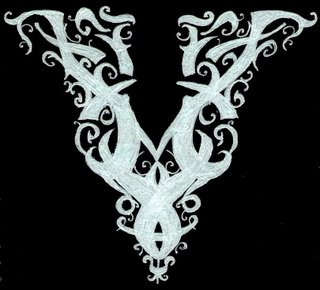Think about the romantic relationships you see going on around you. The real ones, not the guff on TV soaps. How long do most of them last? About six months to two years? This is because those relationships are not based on love. They are based on being in love. The feeling of being in love lasts for about this long: one to two years. If the relationship is taken no further than this, the feeling of being in love will eventually vanish.
Think of being in love as ice on a lake. In winter, we can walk on water from shore to shore. But when summer arrives, the water turns to liquid, and won’t support our weight. The bridge of ice depends on the weather; but we need one that will withstand all seasons. We can use the ice bridge temporarily as we build one that’s more durable: made of wood, brick, or steel. Likewise, we need to use the temporary foundation – being in love – to build a lasting relationship with friendship, respect and trust.
Being in love with someone is an involuntary reaction of mind and body. We see someone that we unconsciously think is our perfect match. Our biochemistry responds, making us feel like we’re walking on air. It is a feeling.
Loving someone is a voluntary act of mind and will. We choose to do what is for another person’s good, instead of what is easiest or more pleasurable for us. This is why parents make their children exercise and eat vegetables – despite the kids’ outbursts: “You’re mean!” “I hate you!”
“I love you” is a statement of choice and promise. To say those three words is to say, “When I have to choose between my desire and your best, I promise to choose the latter.” You may say, but what if my best is opposite to their best? When we’re in a relationship, what is for our best will usually coincide.
Secondly, you might ask, how do you know what’s for their best? Of course we may not know, but even if we mistake what is for their best, we believe it is for their best. It’s still a mistake, but it doesn’t change the essential choice: them or me?
Love is an abstract noun: we can see it only in what people do. This “love” is a stative verb: that is, an action that is repeatedly so consistently that it is almost a default position, a habit.
You might be getting the idea that love means sacrifice. That’s right; it does. You might have the idea that sacrifice hurts. Yes, it does. If it didn’t, it wouldn’t be a sacrifice. But how much a sacrifice hurts depends on what we give up. Do we get rid of a favourite shirt, or our pride? Do we give up a hobby, or a job promotion, or our Sunday sleep-in? How much the sacrifice hurts depends on how much we value it, compared to how much we value the person we love.
Being in love seeks its own pleasure. Love seeks the best for the other person. :)
Friday, June 29, 2007
Subscribe to:
Post Comments (Atom)

No comments:
Post a Comment